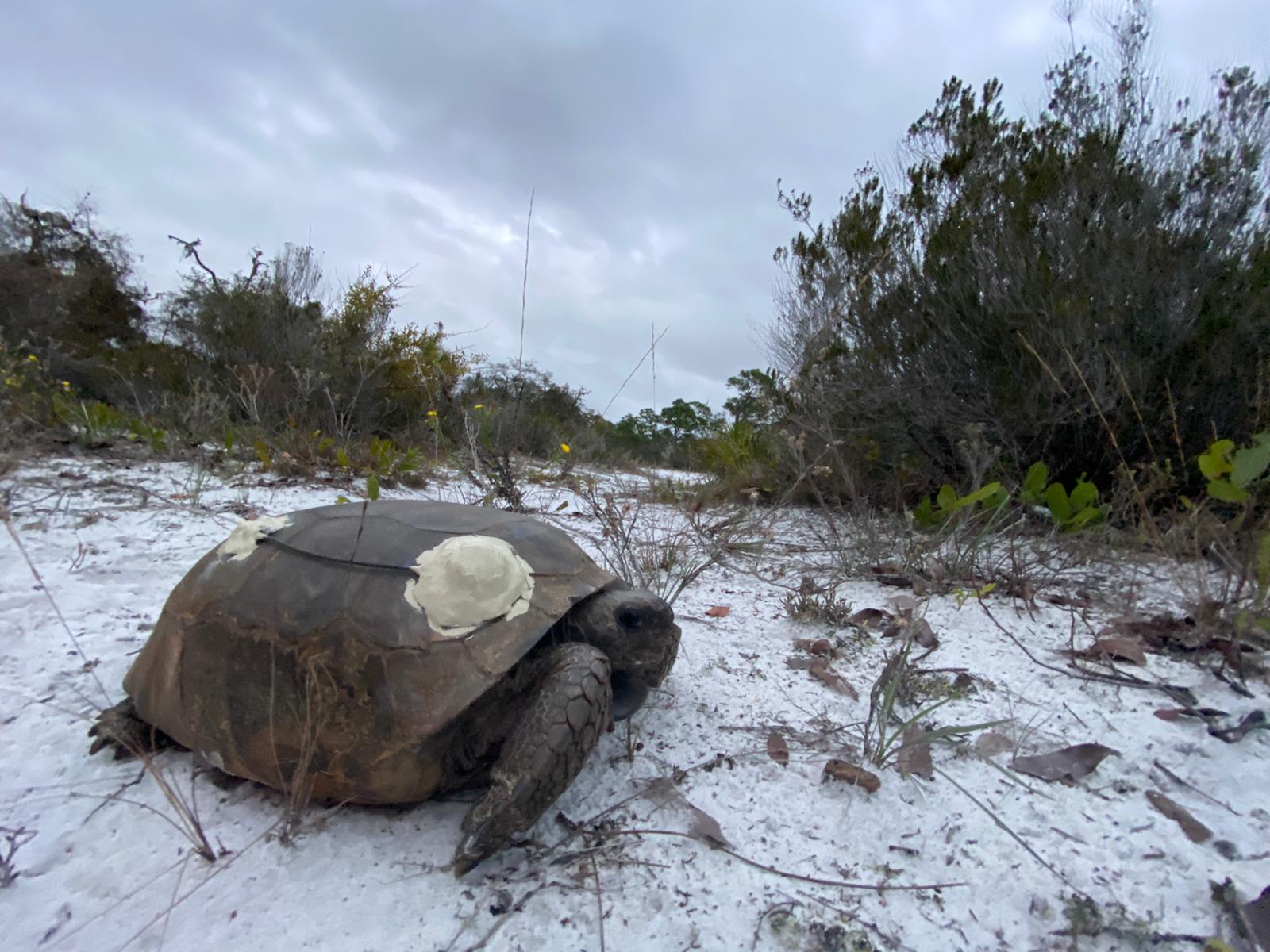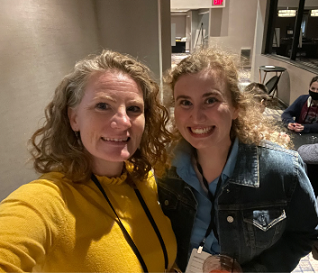Katherine Patterson
As the daughter of a disabled military veteran, it took sheer perseverance to earn enough funding to attend college, but Katherine was able to receive the Florida Bright Futures scholarship, leading her to FGCU. She has independently studied Chinese and traveled to China to participate in an immersion program. Katherine studied biology working with faculty mentors Phil Allman and Lyndsay Rhodes. Katherine also served as an Honors College Mentor, Ambassador, and with the student organizations Project Narrative, Campus Cancer Campaign, and Cooking Club.
Katherine is an Honors College graduate, class of '22. She looks forward to serving on her Fulbright ETA to Taiwan this upcoming year.

How did your mentor(s) encourage and foster your research and academic trajectory?
I’ve been very fortunate to meet and to get to know Dr. Allman and Matt Ryan for the last couple of years. Dr. Allman has broadened my perception of the field of Biology by exposing me, and many other students over the years, to the survey of the Gopher Tortoise population in the area. Under his mentorship, I learned what it means to be part of a high-impact research project, to work with other people from a wide set of interests and backgrounds different from mine, and learn how to conduct field research, and I’m grateful for his generosity. Matt Ryan has been absolutely vital in the pursuit of international medicine, specifically in China. During my freshman year, he encouraged me to apply for a couple of fellowships before I met Dr. Terumi. He’s also helped me to identify study abroad programs that matched up with my interest, as well give me resources to connect with the Chinese-American community in southwest-Florida.
I first started learning from Dr. Rhodes during my sophomore year, when I took her Cell Biology class and she talked about cancer. I didn't really know a lot about cancer, but her passion and enthusiasm to share her knowledge were contagious, and I decided to take Cancer Biology with her. The complexity and nuances of cancer is fascinating to me, and taking that class opened my perspective to the social and ethical issues surrounding cancer, making me a better-informed person. I'm also extremely grateful for Dr. Rhodes' willingness to take a chance on me when I approached her about writing an honors thesis combining Traditional Chinese Medicine with cancer biology. She believed in me even when I doubted myself, and she made time for me in her busy schedule. Because of her support and guidance, I realized that I want to pursue a career combining integrative medicine and oncology.
What does the OCF mean to you?
The Office of Competitive Fellowships has opened up many opportunities for me, both professionally and personally. Throughout the last year, I’ve been able to meet several like-minded peers from a wide range of disciplines through the OCF community. Additionally, Dr. Terumi has taught me how to craft a compelling essay to “roll the dice” for opportunities where the odds are low for me to receive them. Even though the process of applying for a fellowship is demanding, I believe that the effort is worth it because I’ve been able to accomplish more than I thought I could.Through the Office of Competitive Fellowships (OCF), I found a community that supports me and believes in me, even before I believed in myself. My peers and mentors pushed me beyond my preconceived limitations, empowering me to accomplish more than I ever imagined possible. The experience of the fellowship application process has been invaluable, regardless of the outcome of each application, because each application helped me to better articulate what I want to do with the rest of my life, and why it matters to me. I'm grateful to the OCF for the lessons I've learned - to be true to myself and to continuously seek to become a better version of myself, so that I can improve other's lives- and I know that I will take them with me during the next phase of my life.
What is the Critical Language Scholarship?
The Critical Language Scholarship (CLS) Program is an intensive overseas language and cultural immersion program for American students enrolled at U.S. colleges and universities. Students spend eight to ten weeks abroad studying one of 15 critical languages. As a program of the U.S. Department of State, it is part of a wider government initiative to expand the number of Americans studying and mastering foreign languages that are critical to national security and economic prosperity. The program includes intensive language instruction and structured cultural enrichment experiences designed to promote rapid language gains. CLS plays an important role in preparing students for the 21st century's globalized workforce and increasing national competitiveness. With an acceptance rate of less than 10%, the Critical Language Scholarship is one of the most competitive scholarships in the U.S. and the most prestigious language program for U.S. citizens.


